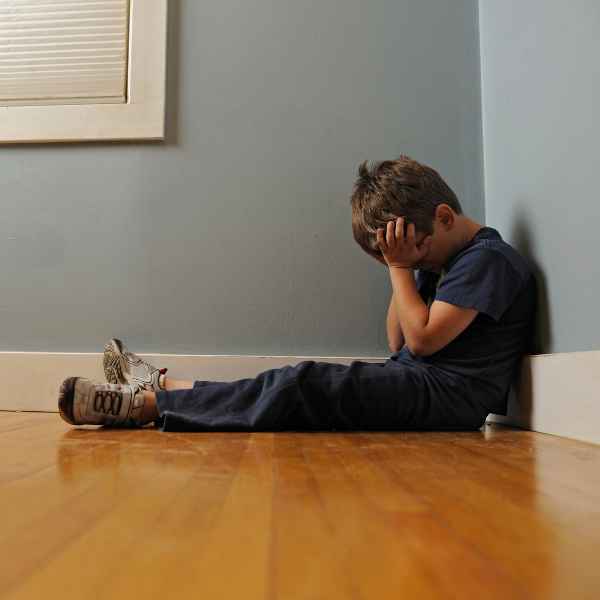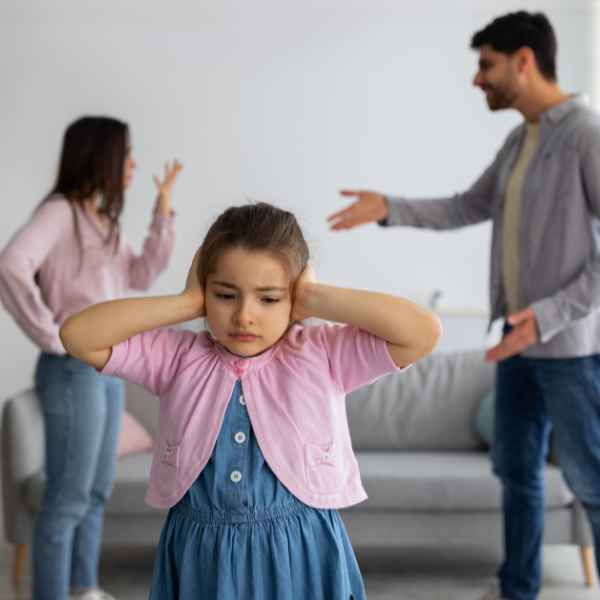
As opposed to parents, children are affected differently by separation and divorce.
Children might have an array of feelings consisting of anxiety, loneliness, anger, sadness and even feelings of bewilderment.
Some might even think that they played a part in bringing the difficulties that their parents might be going through currently. Trying to take away this feeling may take some time and dedication from both parents.
In addition, children might not be sure whether the separation of the parents is temporary or permanent and if it is temporary how long it will take.
This can be rather confusing and especially for the younger kids who may hold on to probably unrealistic notions that the parents will eventually get back together and things go back to the way that they were formerly.

With the new piece of information, despite the fact that you may not be living together anymore, you should bear in mind that you will need each other in the future to play the parental role.
Regardless of your feelings towards each other. You should try as much as possible to work with each other as the well-being of your child, depends on it.
So the question is, how do you put the interests of your children first?
Well, the very first responsibility that you have is to ensure that you minimize any form of conflict towards the other parent and support the relationship to the best of your ability.
This is because as much as you might not want to see, the other parent, the children do not share your sentiments an actually do need to see the other parent as often.
It often helps if you could sit down with your spouse and work out a parenting plan that will include the boundaries, timings and such like factors.
This is a very important tool that will not only help you to minimize conflict but will also ensure that each parent spends sufficient time with the children and caters for their needs as you will discuss.
Well, in any kind of separation between parents, the working out arrangements with regards to the children can and is an emotionally charged process and can be really difficult to reach any kind of agreement, especially in the early stages when the wounds are still open and really sore.
However, with time as the emotions settle down and a friendly/ civil parenting relationship is established, the practicalities concerning the child care can be dealt with and a conclusion and agreement reached.
However, if still during this time you do not seem to be making any considerable step towards an agreement, then you should consider the collaborative law as well as mediation in which a third party will come in to help both of you (parents) reach an agreement without favouring any sides.
Counselling can also do the trick. You could choose to be in different sessions or attend together. It is particularly helpful as talking out loud and sharing the problems can help you see things more clearly as well as make talking to your spouse easier.
Attending family therapy is also an option that you could leave open.
However, while you could go to court and have the matter sorted, going to seek the court’s intervention should be the very last option that you consider after trying the others.
Well, to put it plainly, parental responsibility is what gives you the parent, the right to make certain important decisions that affect the life of your children such as the school they attend, their religion and other such decisions.
For the mothers, the parental responsibility is straight forward. However, if a child is adopted, the biological mother stands to lose her parental responsibility.
For fathers on the other hand, as you may guess, is not as direct. If the two of you were married during the birth the child, then the father in such a situation has parental responsibility. However, if you were not legally married, during the child’s birth, then the date of birth of the child is taken into consideration. If he/she was born after December 1 2003, and on the child’s birth certificate the father was named, then he will take the responsibility. However, if the delivery was before this date, then only the mother has parental responsibility, automatically.
Do’s
Don’t